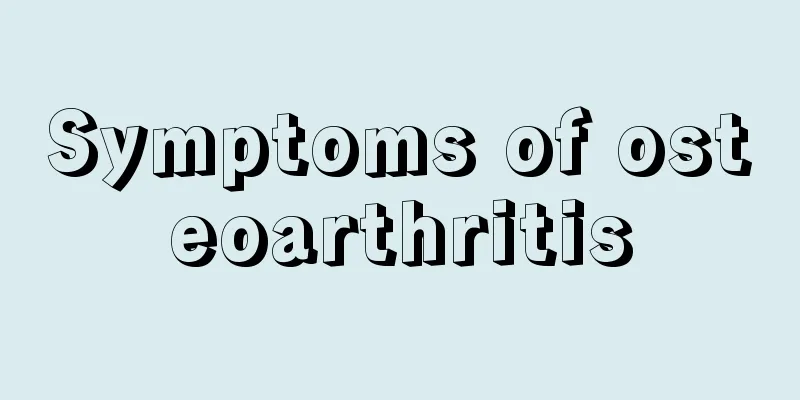This is what radiation enteritis is all about

|
Radiation enteritis is a common digestive system disease in daily life, but what exactly is this disease? Most people are not very clear about this. In fact, radiation enteritis is an intestinal inflammation caused by radiotherapy of malignant tumors in the pelvis, abdomen, and retroperitoneum, which is very harmful to human health. Radiation enteritis is an intestinal complication caused by radiotherapy for pelvic, abdominal, and retroperitoneal malignant tumors. This disease is most common in cervical cancer, bladder cancer, and advanced colorectal cancer after cobalt or radium radiotherapy, with a secondary rate of 10% to 60%. Most cases are due to increased sensitivity of the small and large intestine to radiation therapy. It can affect the small intestine, colon and rectum respectively, so it is also called radiation rectal, colon and enteritis. Radiation sickness is generally divided into acute and chronic types based on the amount of radiation dose to the intestines, the length of time, and the severity of the onset. Depending on where the radiation source is placed inside or outside the body, it can be divided into external radiation sickness and internal radiation sickness. In the early stage, the renewal of intestinal mucosal cells is inhibited, and then the walls of small arteries swell and become blocked, causing intestinal wall ischemia and mucosal erosion. In the late stage, the intestinal wall causes fibrosis, intestinal stenosis or perforation, and abscesses, fistulas and intestinal adhesions form in the abdominal cavity. Generally, the disease rarely occurs when the total radiation dose is below 3000 rad. Symptoms occur when the total amount of intraperitoneal radiotherapy exceeds 4000 rad, and the incidence rate is as high as 36% if it reaches 7000 rad or more. Symptoms may appear early in treatment, soon after treatment ends, or months to years after treatment. 1. Early symptoms Gastrointestinal symptoms may appear early due to the nervous system's response to radiation. It usually occurs within 1 to 2 weeks after the start of radiotherapy. Nausea, vomiting, diarrhea, mucus or blood in the stool. Involvement of the rectum is accompanied by tenesmus. Persistent blood in the stool can cause iron deficiency anemia. Constipation is uncommon. Occasionally low fever. Spasmodic abdominal pain indicates involvement of the small intestine. Sigmoidoscopy may reveal mucosal edema and congestion, and in severe cases, erosion or ulcers. 2. Late symptoms If the acute symptoms persist or do not heal until 6 months to several years after the end of radiotherapy, it indicates that the disease is continuing and will eventually develop into fibrosis or stenosis. Symptoms during this period may occur as early as six months after radiotherapy or as late as 10 or even 30 years later, and are often related to intestinal wall vasculitis and subsequent lesions. (1) Colon and proctitis often occur 6 to 18 months after irradiation. Symptoms such as diarrhea, blood in the stool, mucus in the stool, tenesmus, narrowing of the stool, progressive constipation, or abdominal pain indicate intestinal stenosis. Severe lesions may form fistulas with adjacent organs, such as rectovaginal fistulas, in which feces are discharged from the vagina. Rectal intestinal fistulas may result in chyme being discharged mixed with feces, and intestinal perforation may also cause peritonitis, abdominal or pelvic abscesses. Intestinal obstruction may occur due to intestinal narrowing and entanglement of intestinal loops. (2) Enteritis When the small intestine is severely damaged by radiation, severe abdominal pain, nausea, vomiting, abdominal distension, and bloody diarrhea may occur. However, the main symptoms in the late stage are malabsorption, accompanied by intermittent abdominal pain, steatorrhea, weight loss, fatigue, anemia, etc. |
<<: It turns out that there are these dos and don'ts in the diet for pulmonary arterial hypertension
>>: It turns out that there are 5 things to pay attention to in preventing pulmonary hypertension
Recommend
Aspartate aminotransferase
We probably have rarely heard of aspartate aminot...
The last symptoms of gallbladder cancer
There are many situations and characteristics of ...
What to do if you have a boil on your vulva
Generally speaking, boils occur most often in the...
How to determine transient hyperthyroidism
For most people, hyperthyroidism is a chronic dis...
What are the taboos of lemon paste
Lemon paste is a relatively common health food. E...
How can I have a miscarriage in the early stages of pregnancy
Many men and women in love, or married couples, m...
How to treat low neutrophil count
How to treat low neutrophil count? This issue is ...
How to peel corn kernels
When it comes to the corn season, many friends li...
What are the targeted treatments for lung cancer
Targeted therapy for lung cancer 1. In the treatm...
Why can traditional Chinese medicine treat gastric cancer
It is unlikely that patients with advanced gastri...
Improving small cell lung cancer from several aspects
Patients with small cell lung cancer should not o...
What kind of exercise is helpful for chronic uterine cancer
Women who keep working in the same position for a...
6 tips to comprehensively enhance liver function
The liver plays a role in removing toxins, metabo...
Is washing powder toxic when washing dishes?
As we all know, laundry detergent is very effecti...
Why can't you wash your hair before going to bed
After a busy day, we always want to have a good r...









